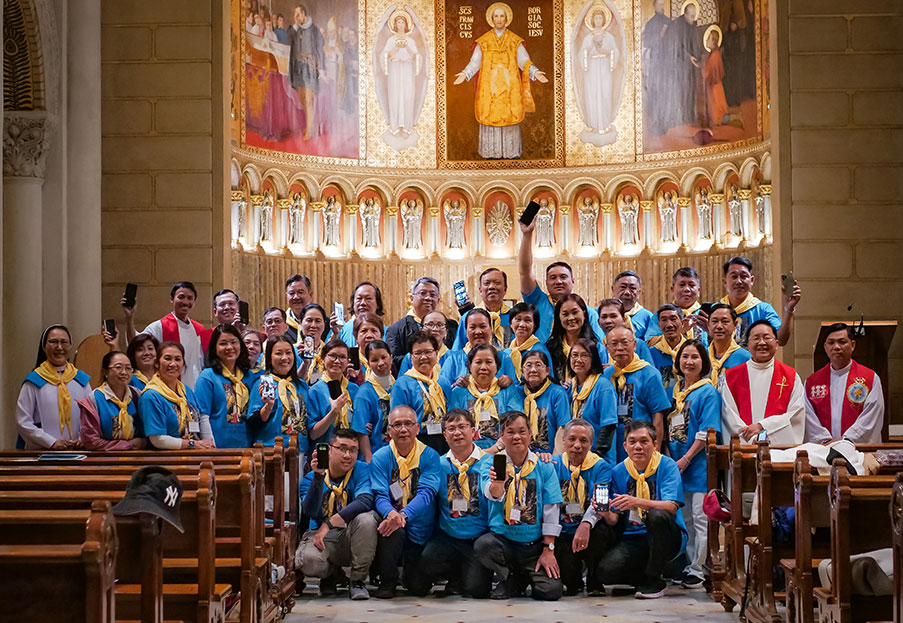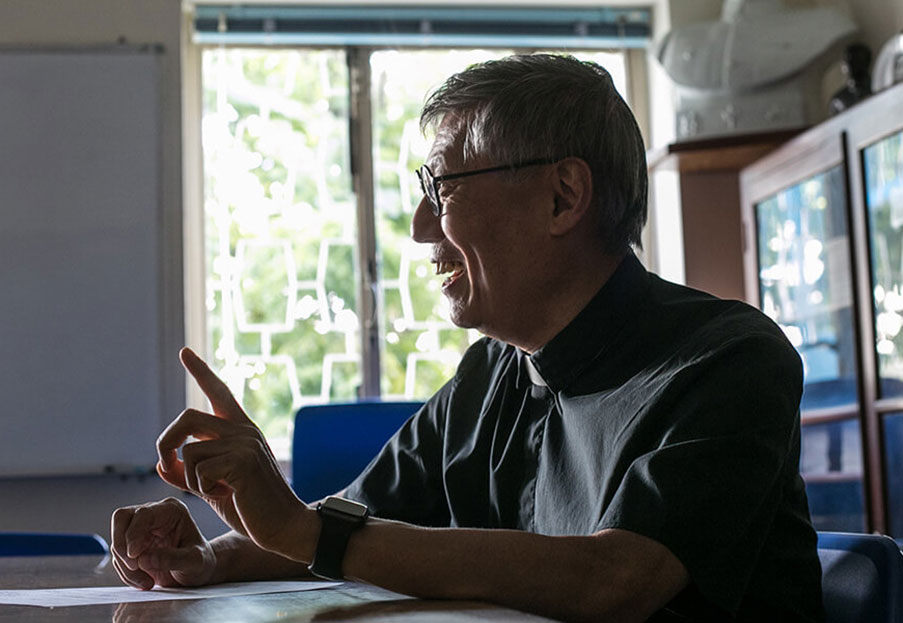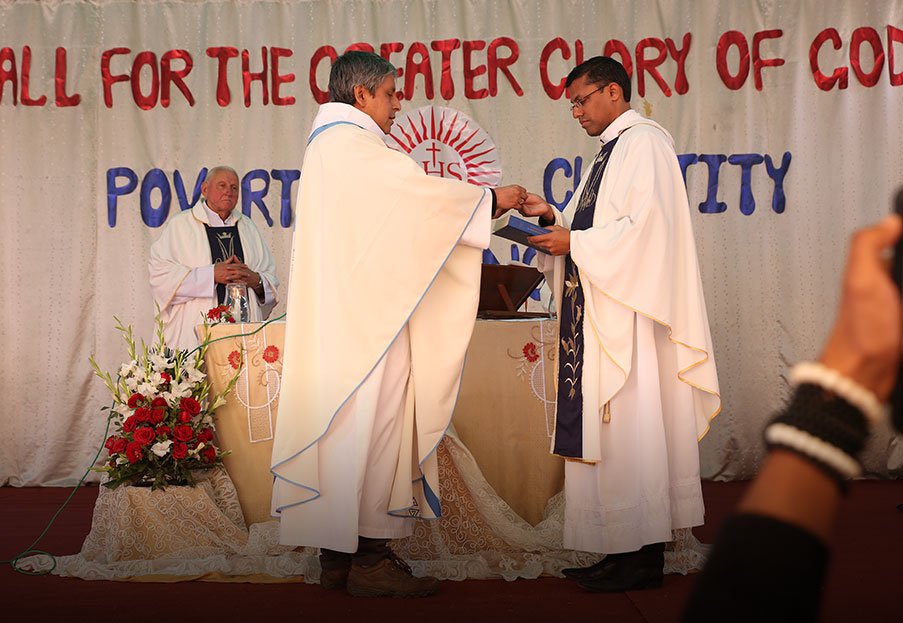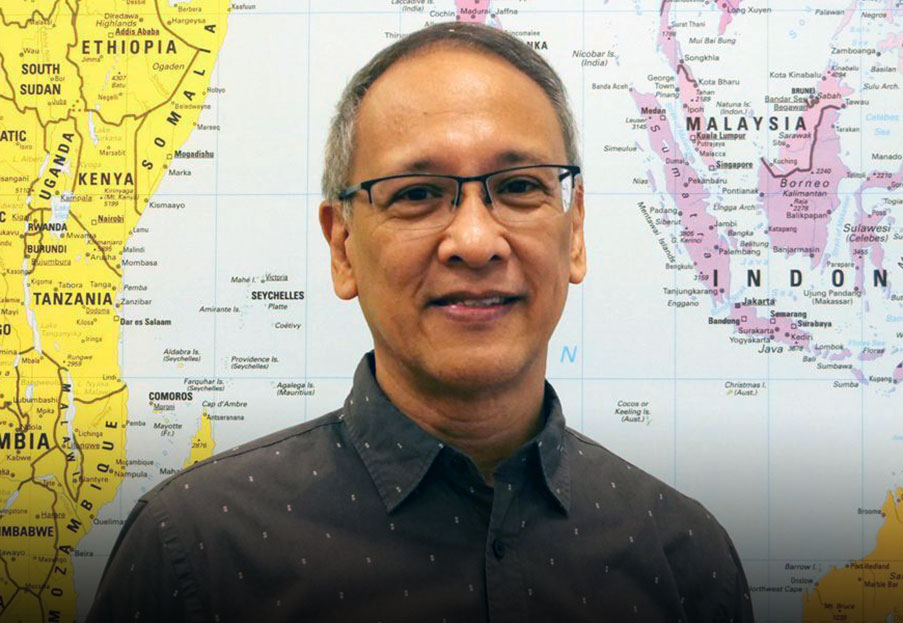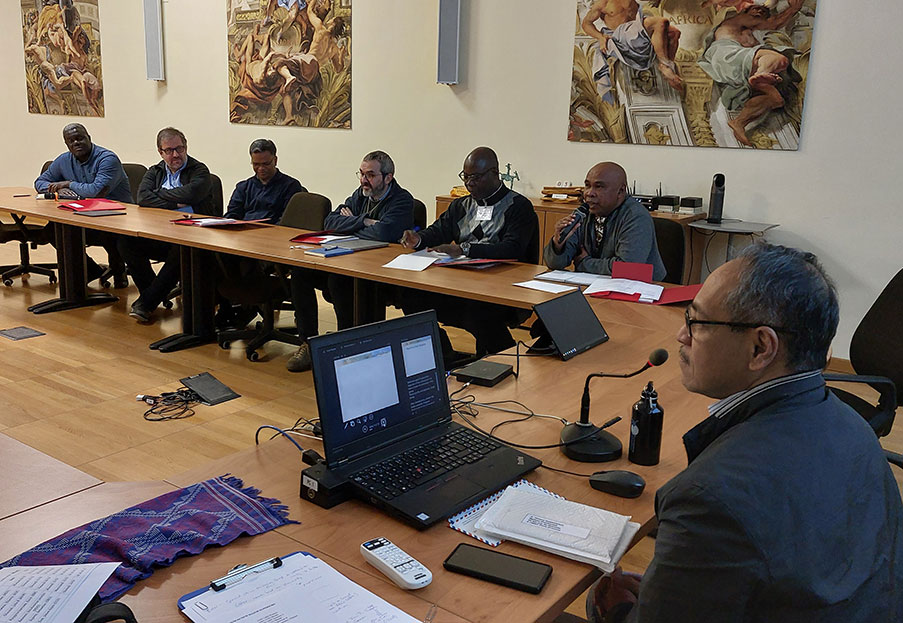The Ignatian Examen at Wah Yan College
John Yong Tang, SJ; Ms. Jasmine Hui Nga Man;
Alan Ting Yuet Wong, SJ - Wah Yan College, Hong Kong, Chinese Province
[From
“Jesuits 2023 - The Society of Jesus in the world”]
Students from a Jesuit secondary school in Hong Kong share their experiences with an adaptation of the Ignatian Examen.
Wah Yan College, Kowloon, is a Jesuit secondary school in Hong Kong. It has 884 students and approximately 100 staff members. Six years ago, the school decided to implement a school wide Examen into its daily timetable. Each school day begins with a twenty-minute Jesuit value education with the Examen prayed straight after lunch. This allows the Jesuit ethos to grow in the students’ minds and hearts, through both theory and practice. Because the majority of students and teachers are non-Christians, the Examen required adaptation. We had to meet two major challenges.
First, the Examen had to be adapted. Texts were developed in both Cantonese and English to fit the school non-religious context. Moreover, the understanding of “finding God in all things”, was substituted by “finding goodness in all things” which becomes the permeating phrase used by the students’ reflection of their lives, studies, families, friendships and relationships.
Second, teachers had to be formed to guide the Examen prayer. They were given lessons and we also prepared videos for teachers and students, to guide teachers who did not yet feel sufficiently ready. The texts and videos outlined the basic framework for Wah Yan Kowloon’s Examen. Once the teachers self-mastered the Examen, they were encouraged to further fine tune it for the particular context of their classes.
Six years later, the Examen is a part of daily school life with trained teachers and
students able to lead the group Examen.
The results have been positive. There have been numerous benefits for students
and they span a range of areas but, most importantly, the students have become
calmer, more reflective and better behaved. They also have manifested higher
standards for their behaviour. Concretely, why not hear from the students
themselves? Four of them have been selected, two Catholic and two non-Catholic,
to share their experiences of the school’s Examen.
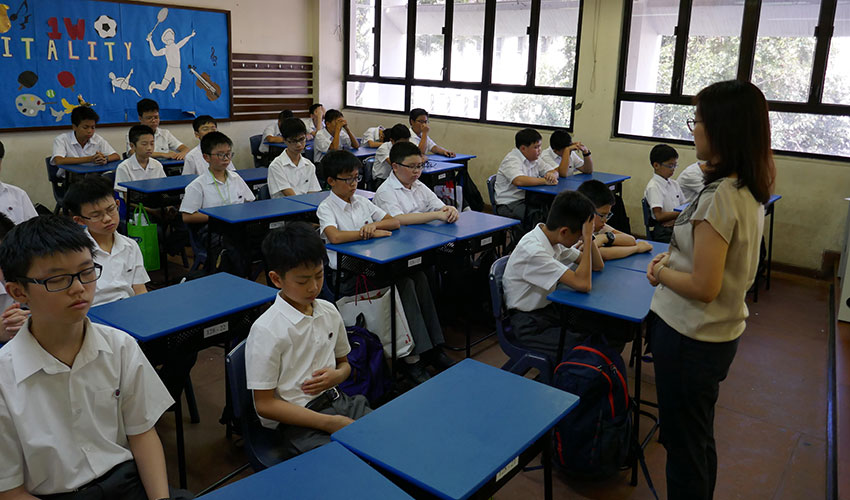
Some testimonies
We asked them: 1) How long have you practiced Daily Examen? Do you practice it only in school or, both in school and at home?
“I have practiced Examen for about five years. Since I was in my first year at Wah Yan, we have practiced Examen after our lunchtime every day, and our class teacher would lead us to do the Examen. I practice it both at school and at home, and I also use it during the school holidays.” (Jack, a 5th year non-Catholic student)
2) In what way does the practice of Daily Examen help you to learn and grow as a person, such as its content, format or key elements? Could you give an example?
“The practice of Daily Examen helps me to become more mature, and at the same time
discover my own strengths and learn about my own shortcomings. For example,
before I stood for the election of the chairman in the school Choir, I
reflected on myself what I am more confident with and which aspect I lack
confidence to deal with. Then I found that my public speech skills are not very
good, especially when I am in front of a large group of people. I also found
that, in a spirit of cooperation, I could let my vice-chairman handle it; so, I
chose a vice-chairman who really knows how to speak confidently and provides a
lot of support to me. Personally, I focus on administrative responsibilities.
It turned out we worked very well despite the COVID-19 virus that disturbed
everyone’s plans.” (Leo, a 5th Year Catholic student)
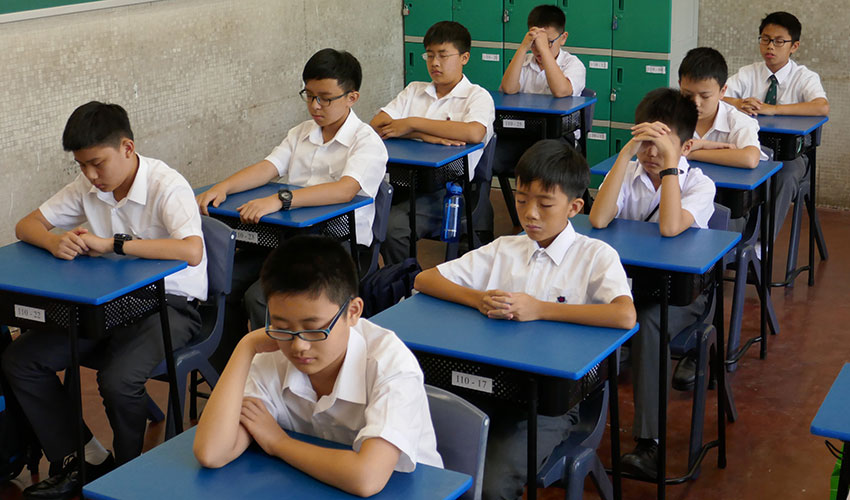
3) How does Daily Examen foster your spiritual growth, understanding of Ignatian values or/and Christianity?
“The Examen helps me to be more grateful for what I have, and acts as a way to change my bad habits. We usually focus on something we don’t have rather than ones we have. But through the Examen, students are reminded to think of what we have, and how to improve ourselves, as what magis means. For example, I usually leave assignments, the ones that were given more than three weeks before, to the very last days, and this leads to stockpiling of assignments, commonly when exams are coming. Moreover, the Examen also helps because it gives me time to think of how to motivate myself for these long-term assignments. I would then work on them bit by bit every day, before going straight to the short-term homework.” (Victor, a 3rd year Catholic student)
4) Will you continue to do the Daily Examen after graduation? Why or why not?
“Yes. When I encounter issues with university
projects, I will reflect on what I did. If I don’t have time, I will still find
a short time to reflect. And I will always try to be grateful.” (Marcus, a 1st
year non-Catholic student)

